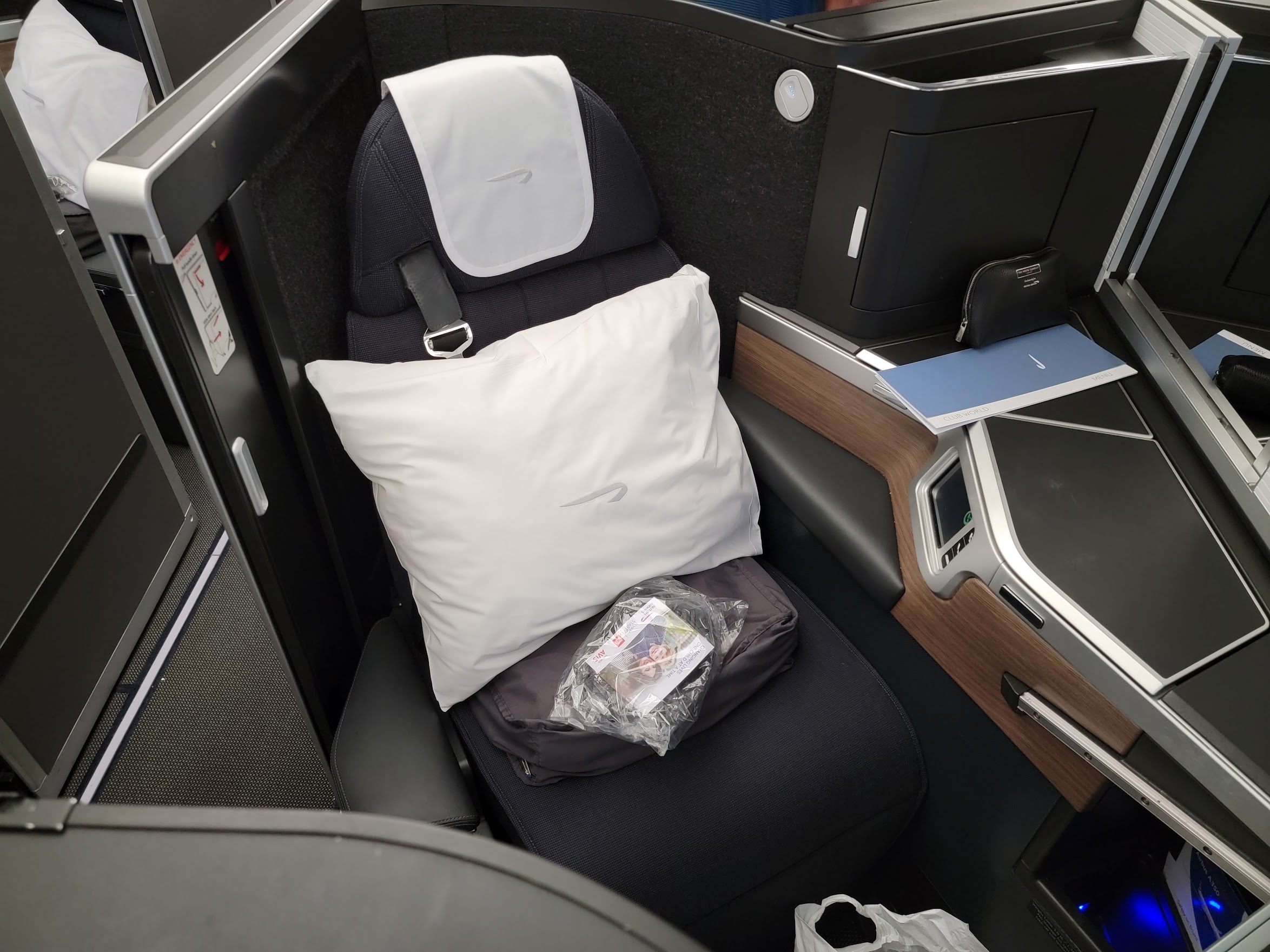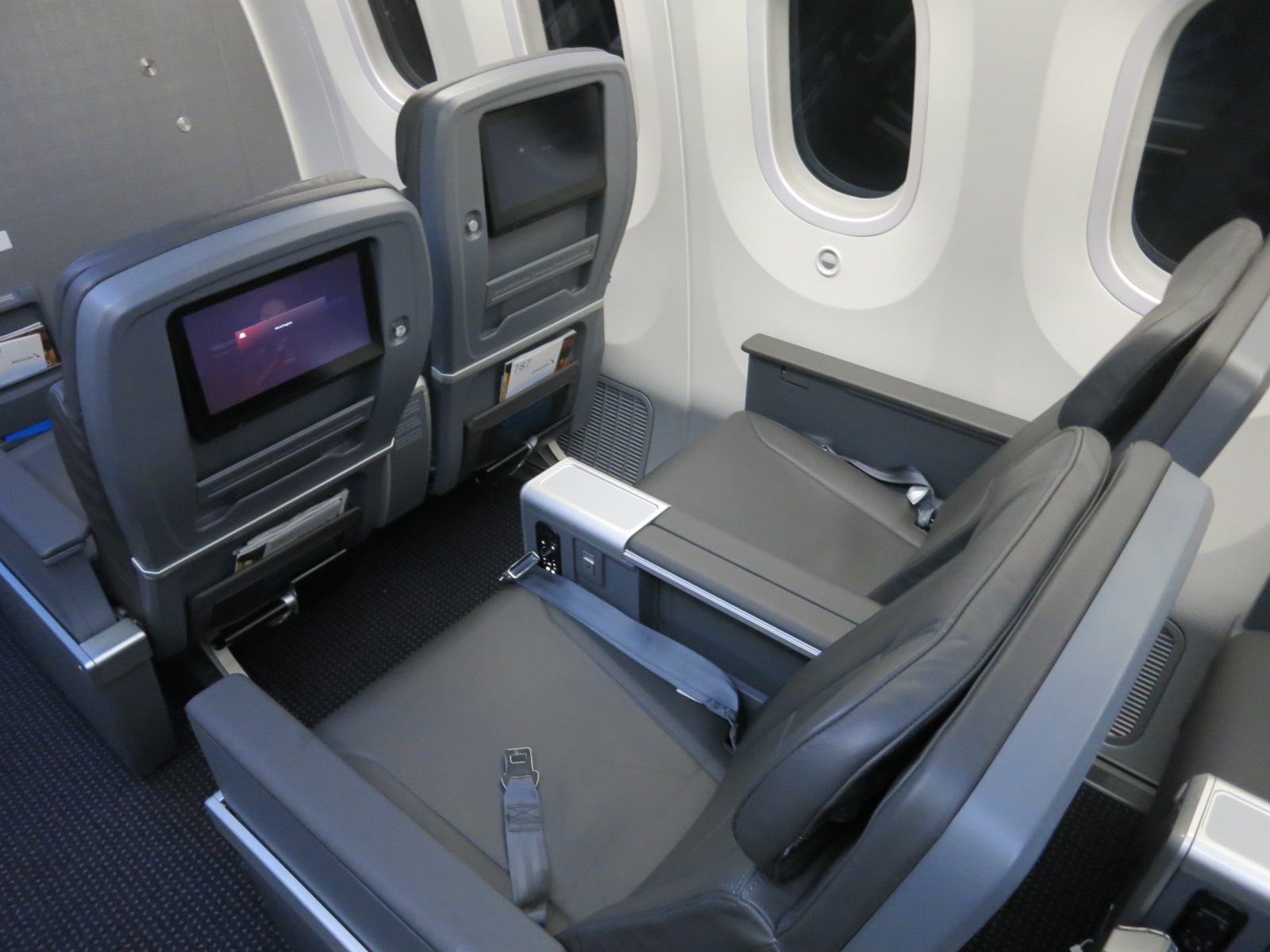No business has more data on passenger upsales to business class across airlines than PlusGrade, and its CEO says that the product an airline offers really matters in monetizing the cabin.
And The Airline Observer (paywall, worth subscribing) shares that this data shows that, while “[a]irline insiders often say product doesn’t matter much — that as long as carriers fly a competitive cabin at popular times for a fair price, customers will buy” in fact “product quality matters a lot.”
[A]n upgrade is an impulse purchase. Customers are more likely to buy, and to spend more, on the best cabins, Harris said. While a typical business traveler may just want to sleep, these people value experiences for longer flights.
“Some of the business cabins these days are so incredible,” he said. “You put some of these pictures in the communication to someone and say: ‘you can be in this,’ or ‘you can be in this.’”

American Airlines CEO Robert Isom believes on-time performance is all that matters, that indeed the taste of the food and comfort of the seat depend on operating on time. American’s Chief Commercial Officer Vasu Raja offers a subtle difference, that the schedule is the product. But those are table stakes. An airline needs to offer ways to get passengers from one place to another and operate well and deliver a quality product.
What the PlusGrade CEO sees is that when a customer decides to fly an airline, how do they form the decision to spend more money with that airline? I’ve written that style matters in selling airline tickets.
Legacy carriers like American Airlines (and United and Delta) have to earn a revenue premium for their product, because they will never compete on price with newer cost entrants into their markets. They must deliver a premium product to cover labor costs, service debt, and have anything left over for shareholders.
Sumers also points out that PlusGrade upgrade bids aren’t always determined by price. Sometimes they’ll skip over high bidders and award an upgrade to someone that has “put in six or eight offers and never won” to give them an experience of the product because their data shows “that, especially to premium economy, once you buy up, you come back and buy it outright.”
Oftentimes customers do not know the details of what an airline offers. They assume that premium economy is going to be a better experience than economy (and not just a bigger seat, also that the seat will have a leg rest). So airlines do capture revenue without delivering a quality product one time, though their reputations suffer and passengers spread their dissatisfaction broadly in social media in a way that never used to be possible.

Assigning premium economy to coach flight attendants, providing a mere foot bar, and barely differentiating meals and beverage selection doesn’t work to generate strong premiums for the product. It might still be worth offering the cabin compared to fares in coach, but customers will buy when it’s a deal not pay substantially more than that. The same holds for business class, where the details matter even more given the price difference.


Maybe the product matters. Maybe there are ppl who have unlimited budget (or someone paying for travel) and they pick “product” and “experience”. Most of leisure travelers, which are prevalent lately, pick based on price, convenience of connections, and availability. Maybe airline loyalty plays a small part (I wouldn’t pay more than $20-$50 for flying DL where I have status and history).
I don’t think there’s doubt that people prefer and May pay up for a better product, the question is are there enough people willing to pay up enough of a difference that the airline generates enough revenue to earn enough incremental profit that they earn a good return on the incremental capital required to support a better product. The evidence on that front would suggest it does not
@Dominic – What “evidence” do you have to support your statement?
״What the PlusGrade CEO sees is that when a customer decides to fly an airline, how do they form the decision to spend more money with that airline? I’ve written that style matters in selling airline ticket” – 100% agree!
This though:
“Sumers also points out that PlusGrade upgrade bids aren’t always determined by price. Sometimes they’ll skip over high bidders and award an upgrade to someone that has “put in six or eight offers and never won” to give them an experience of the product because their data shows “that, especially to premium economy, once you buy up, you come back and buy it outright” –
I find that very hard to believe.
@controller the highest return on capital airline in Europe is…Ryanair, which strips away just about anything premium from the product. Among the legacy European groups, IAG has had by far the highest return on capital despite having competing network airlines at their hubs (Virgin Atlantic at LHR and Air Europa at MAD) and IAG’s airlines historically having the worst premium products and being the first mover on “customer unfriendly” moves. It’s a similar story in the US (only AA has had international F in recent years and their long haul J had been the best of the three until the D1/Polaris retrofits were completed, and they also have the worst returns on capital of the 3) which would tell you that broadly speaking, airlines don’t earn a good incremental return on capital on making their product more premium.
Yeah, the point is that this is the CEO of a company that sells upgrades. Businesses don’t buy upgrades; they either put their employees in coach, business, or first. Nonstop connections and a satisfactory product are decisive.
So, airlines historically have had little incentive to appeal to the upgraders.
But, that’s history. When I fly, if it’s for work, I’m in the back. As a public employee, heaven forfend I fly in a class where I can work. So, on long hauls, I’ll often take an upgrade if I can swing it, but I gotta bill the economy. And for non-work, I’m free to choose the best value.
I’m looking at a flight in a few weeks with DL: ten hours east-to-west, leaving fairly early.
Now, why would I want anything other than economy? Delta one has lousy food, bad wine, and a nice seat. I’m not going to be sleeping much. Should I pay ten times the price for a bigger seat?
Congrats on a record year, DL!
Only 2 words needed for UA, AA & DL to learn what customer service is & what “premium” should be to generate revenue, and they are: Singapore Airlines.
Allow foreign competition and stop this protectionism, and I guarantee the Big3 will step up their games real quick!
Until then, I avoid the Big3 on all international long-haul.